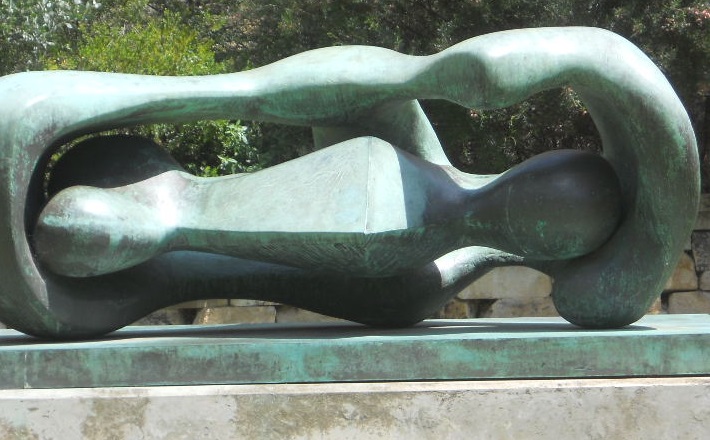Commentary on Psalm 71:1-6
In the well-loved Traveling Mercies: Some Thoughts on Faith, Anne Lamott writes:
“It’s funny: I always imagined when I was a kid that adults had some kind of inner toolbox full of shiny tools: the saw of discernment, the hammer of wisdom, the sandpaper of patience. But then when I grew up I found that life handed you these rusty bent old tools — friendships, prayer, conscience, honesty — and said ‘do the best you can with these, they will have to do’. And mostly, against all odds, they do.”
Overview of Psalm 71
Could Psalm 71 be one of those rusty, bent, old tools for Christians, no matter where we find ourselves in life? It may not be a stretch to claim this Psalm as such, particularly since it borrows lines from other Psalms with frequency (e.g.: Psalm 22, 31, and 38). And, like so many other Psalms in the Psalter, Psalm 71 makes use of the familiar prayer pattern that moves from petition to declaration.
Though construed as a prayer, this Psalm is primarily a declaration of an individual’s trust and hope in God that can be voiced in various life stages: birth (v. 6), youth (vv. 5, 17), and old age (vv. 9, 18). No matter when it is voiced, one thing is sure: the Psalm’s message of trusting and hoping in a faithful God is capable of enduring throughout the long-haul of life.
Compared to its predecessor Psalm 70, Psalm 71 is a less urgent plea for help and a more sturdy statement of hope and trust. While the suppliant is not immediately apparent, it may be that the Psalm is voiced from the perspective of an individual in a latter stage of life capable of reflecting on all stages. That individual could be David in old age shortly after Absalom’s revolt, or more likely a member of the Rechabite community in exile (see Jeremiah 35).1 Verse 21 suggests the author of the psalm could have been a leader.
A psalm of hope
The six verses laid out in this week’s lectionary passage introduce a structure that will be maintained throughout the remainder of Psalm 71. The Psalmist issues an opening statement requesting help (v. 1-4), and follows with a statement of trust (v. 5-8). This pattern repeats itself in verses 9-13 and 14-17, as well as in verse 18 and 19-24.
From the opening four verses, it is clear that the Psalmist is entirely dependent on God (v. 1) because of God’s righteousness (v. 2). In contrast to other passages of scripture that speak metaphorically of YHWH as a high cliff or ask to be taken away to Zion, this Psalmist claims YHWH is an abode under which to take refuge (v. 3).2 Perhaps a victim of some sort, the Psalmist trusts that God has the ability and the power to set the wicked, the unjust, and the cruel right (v. 4). Here, the Psalmist is making an eschatological statement that even in the midst of powerful opposition, God will rule and prevail over that which is unjust in both the short-term as well as the long-term (v. 3-4).
Verses 5 and 6 make clear that any strength the Psalmist will have does not reside in self, but in God. How does the Psalmist know this? By experiencing YHWH’s protection and deliverance throughout a lifetime. In other words, from the womb until old age, the Psalmist has always, and will always belong to God (v. 5-6a). Praise, then, is the most appropriate expression to God. This praise is not a once-in-a-while liturgical action, but an action that imitates God’s care over the Psalmist’s lifetime. Thus, praise becomes an ongoing, continual action of living a sacrificial life of worship (v. 6b).
Preaching the psalm
This week’s lectionary passages are filled with imagery of life stages: birth (Jeremiah 1:5; 1 Corinthians 13:11) and youth (Jeremiah 1:6; Luke 4:22) and old age (1 Corinthians 13:11; Luke 4:25). They are also filled with imagery of courageous spokesmen speaking prophetic words: Jeremiah in the Old Testament and Jesus in the New Testament. And, the Epistle includes Paul’s admonition for how we ourselves are to speak.
In the context of these passages, this Psalm reminds us that those who orient their lives toward the ways of God and the kingdom of God will face hardships. The good news, however, is that those hardships are not lasting, but the strength of God is: from age to age. “Faith lives amidst adversity, [but] praise is not the celebration of the powerful and the prosperous; rather, it is the language and the life-style of those who know at all times and in every circumstance that their lives belong to God and that their futures depend on God.”3 Whatever we do in word, action, thought, or deed, is to reflect a lifetime of learning through experience — as the Psalmist has — the goodness of the God in whom we place our hope and trust.
Notes:
1 John Goldingay, “Psalm 71,” in Psalms, Volume 2: 42-89, ed. Tremper Longman, III, Baker 366-367.
2 Goldingay, 369.
3 J. Clinton McCann, Jr., “The Book of Psalms,” in The New Interpreter’s Bible (Nashville, TN: Abingdon Press, 1996), 4:960.


January 31, 2016